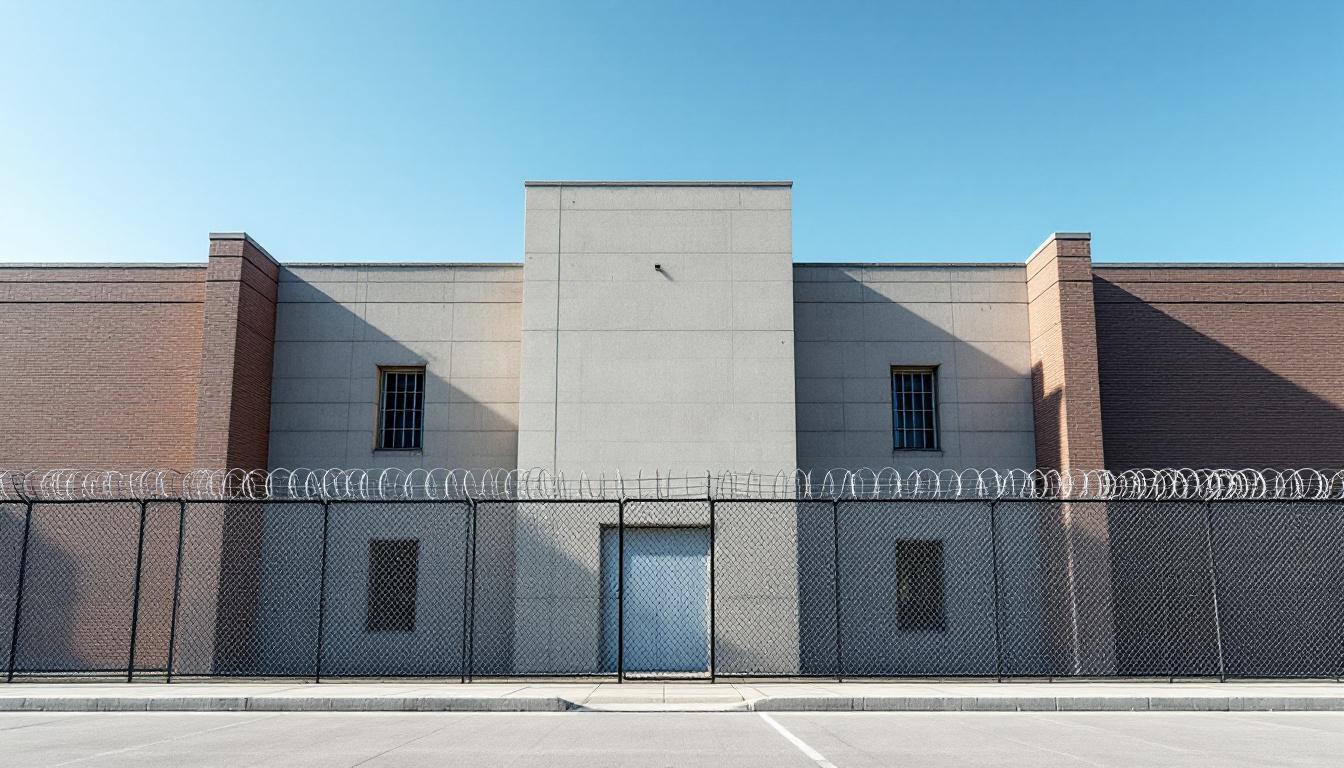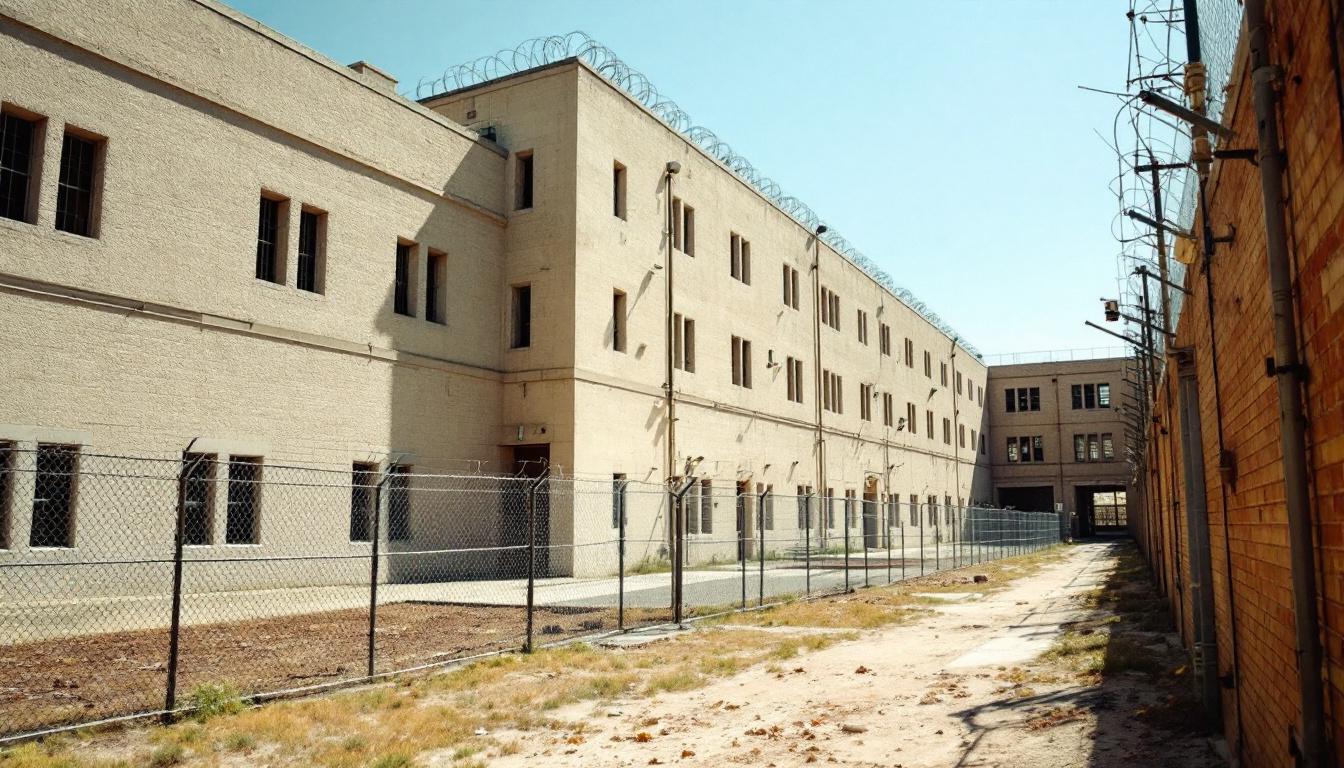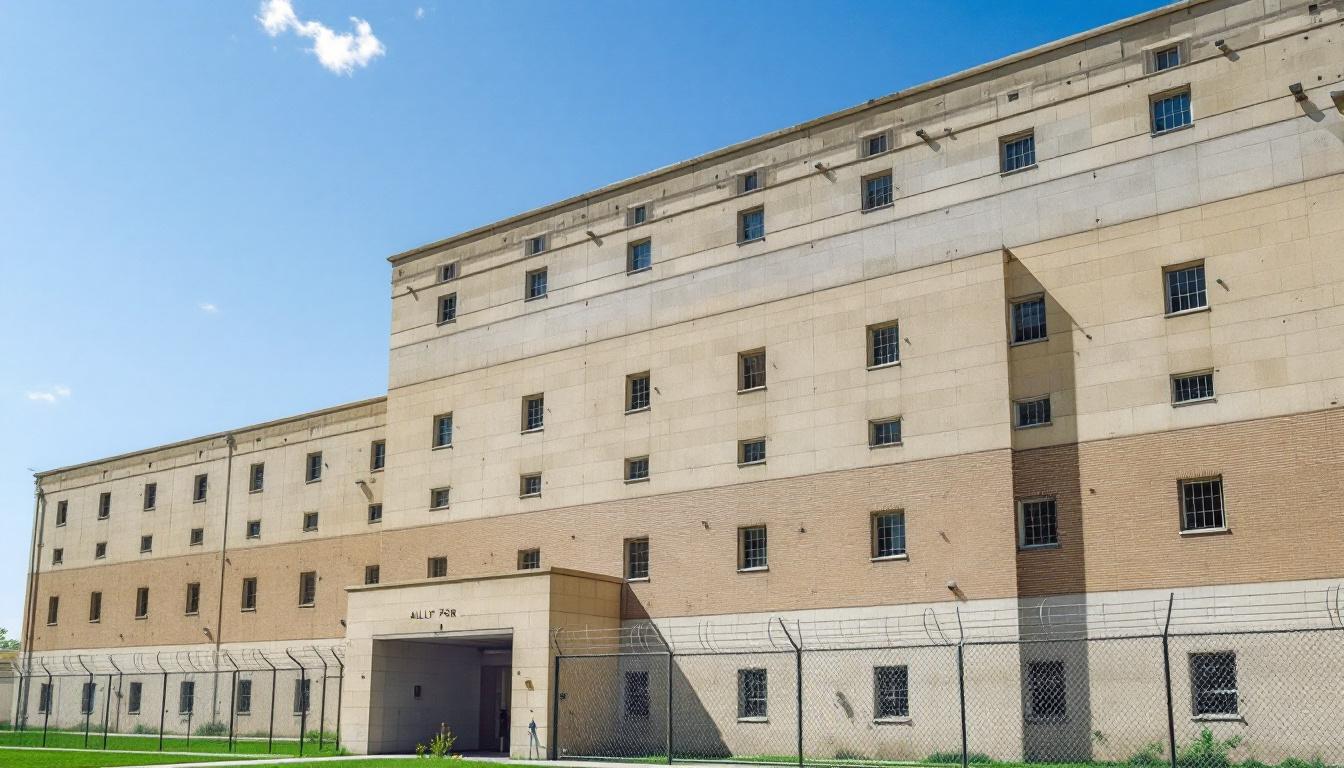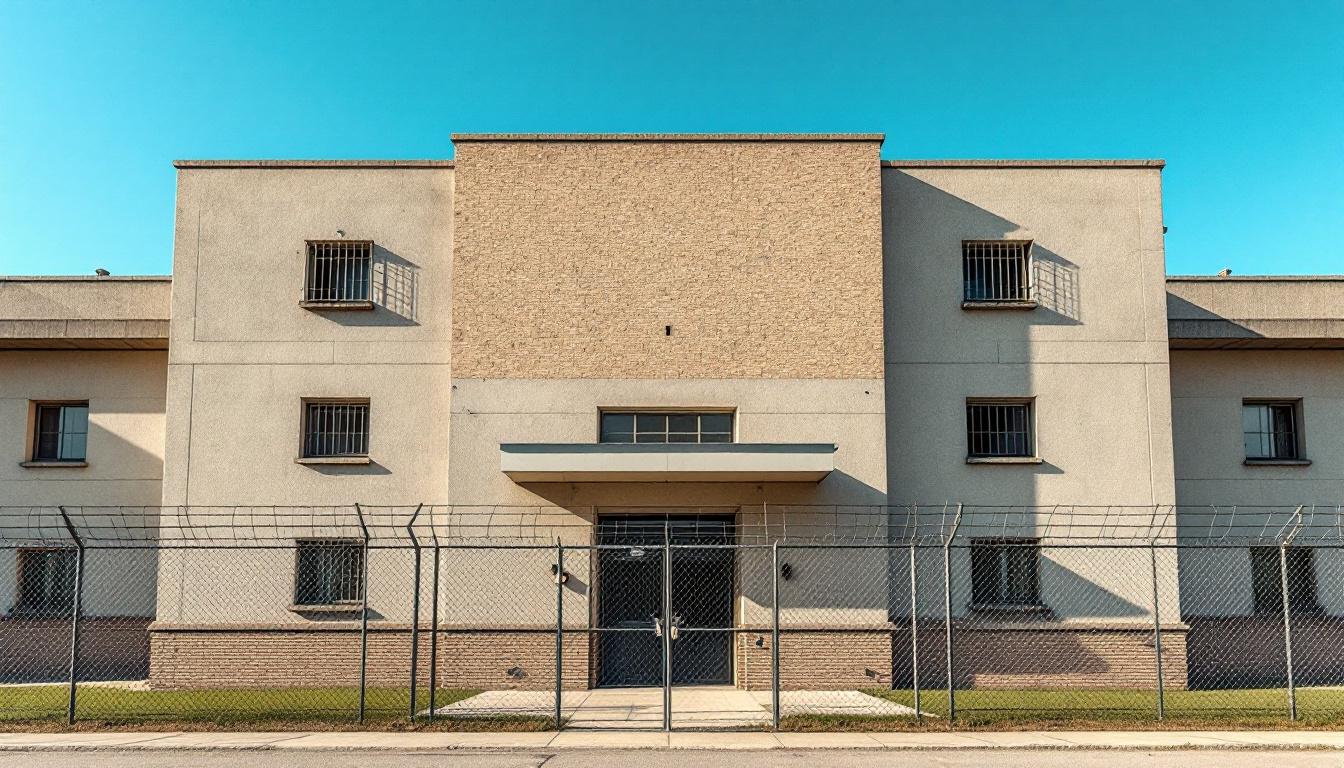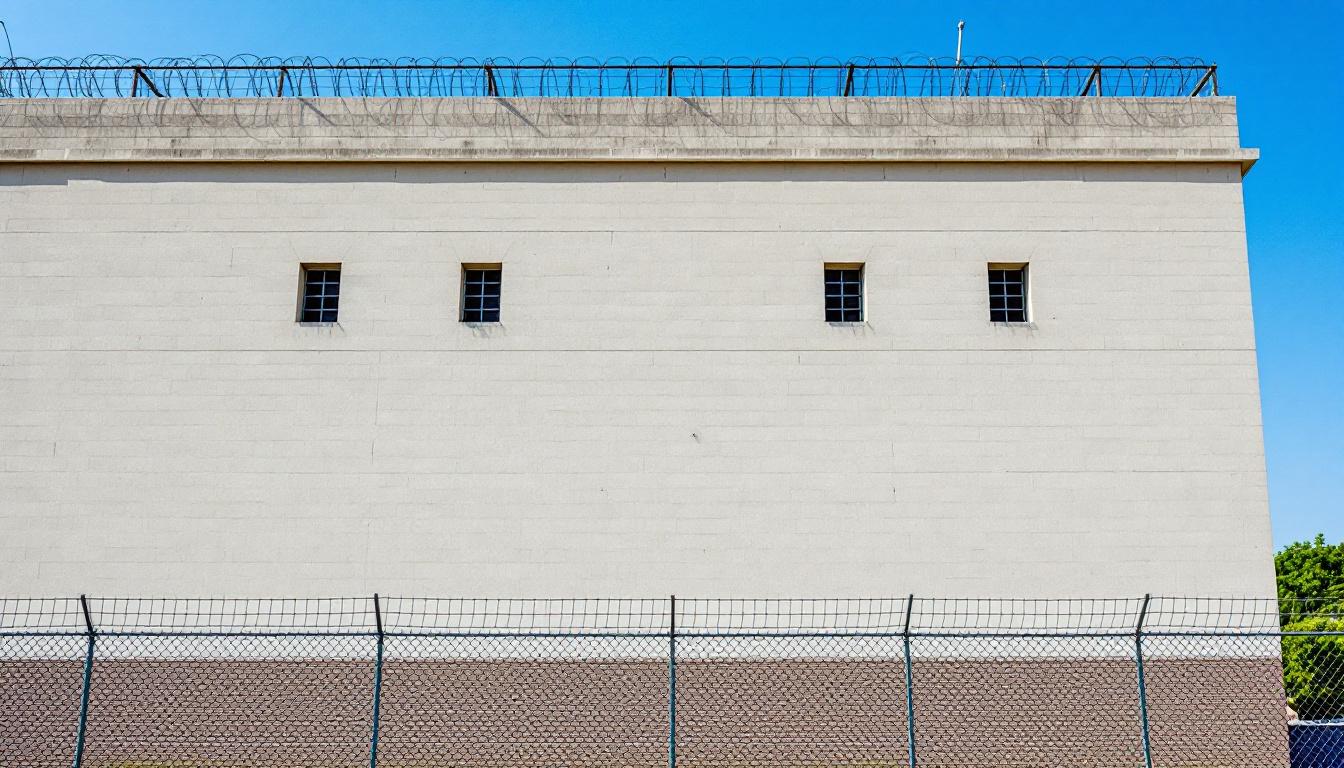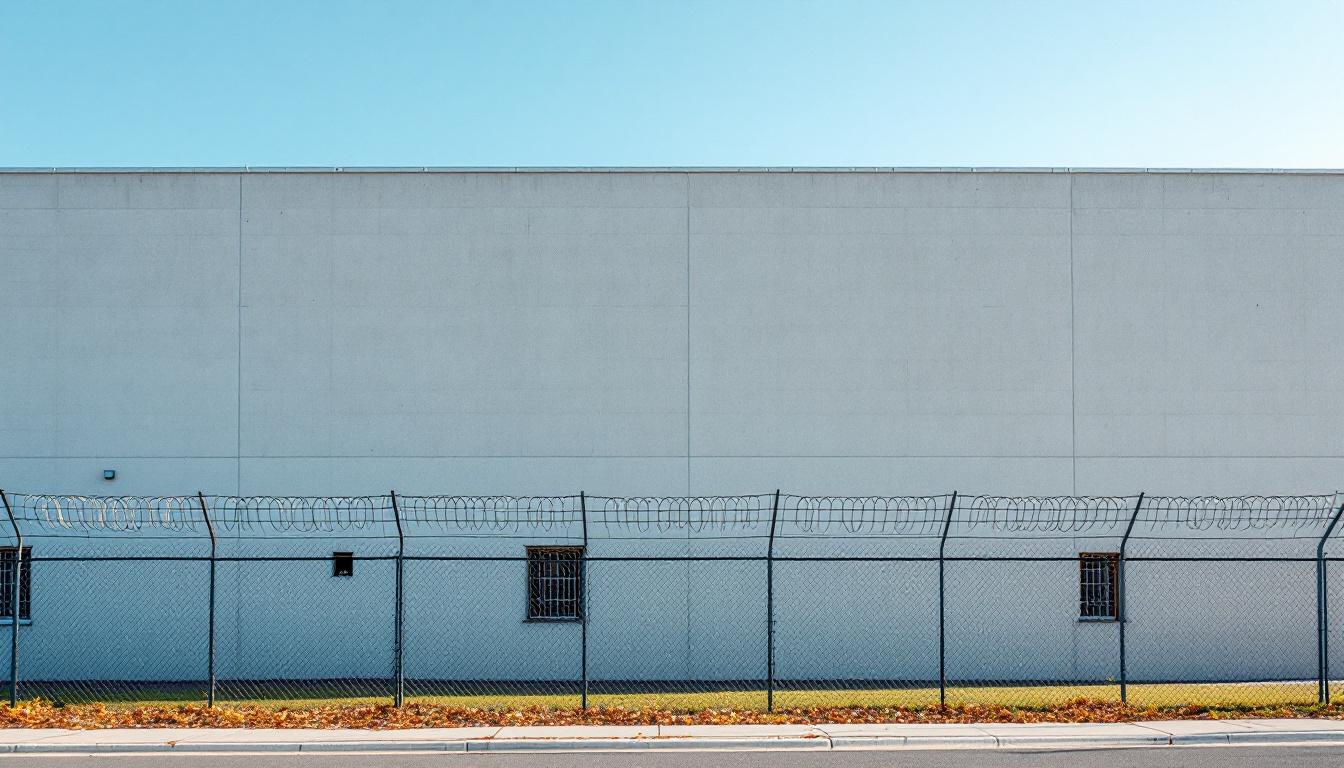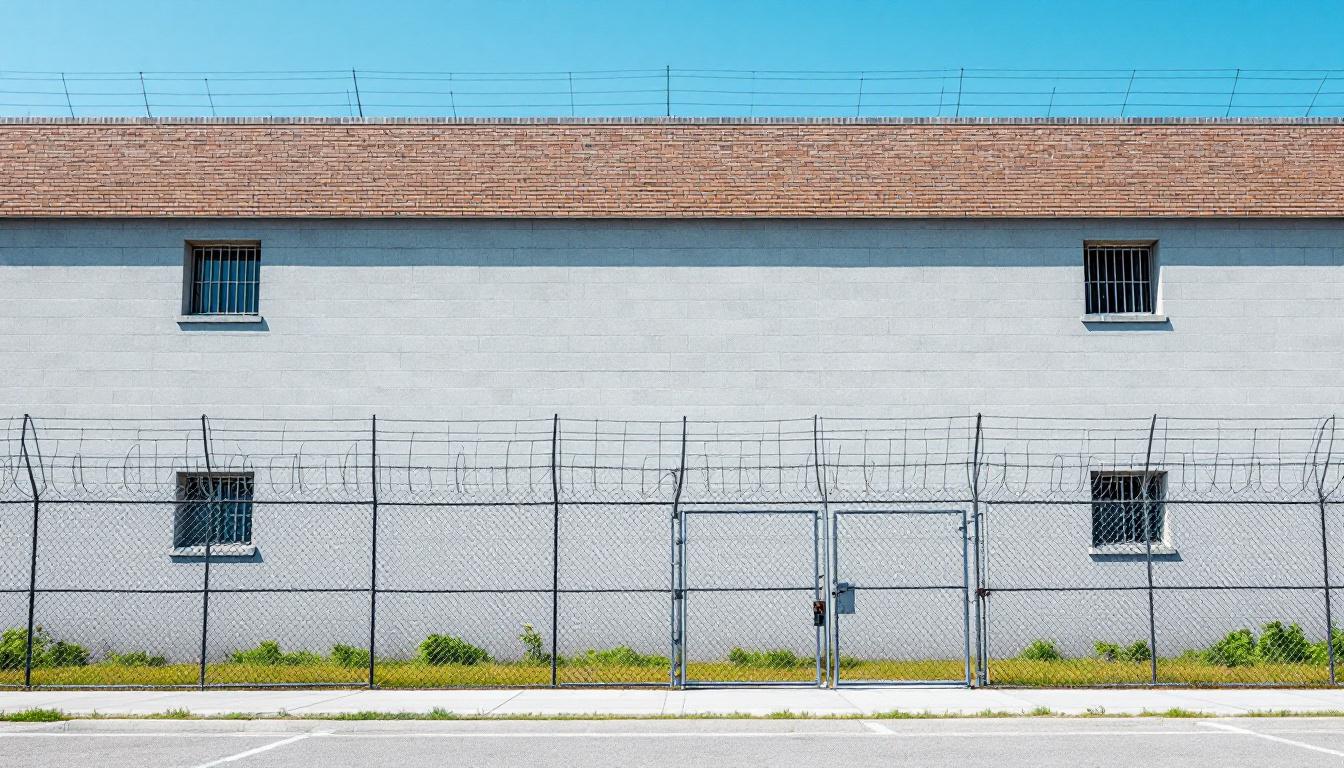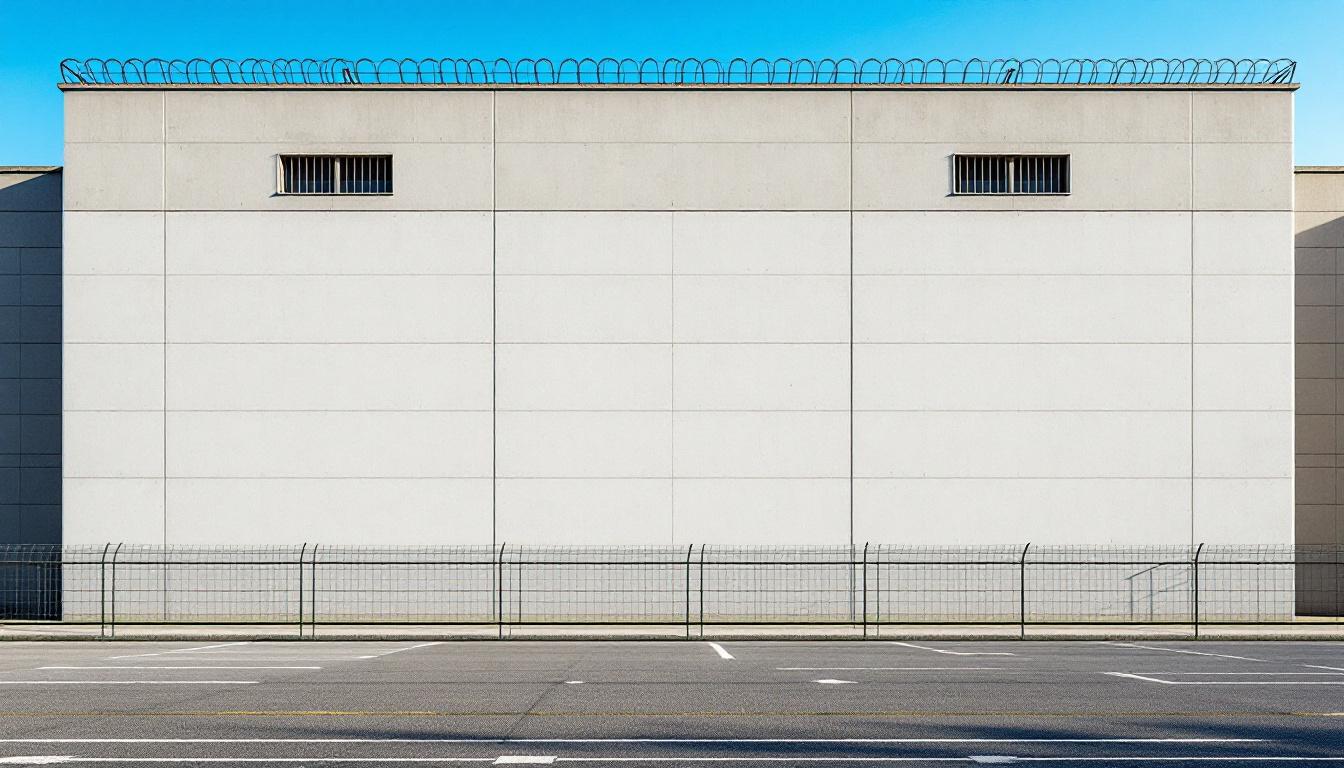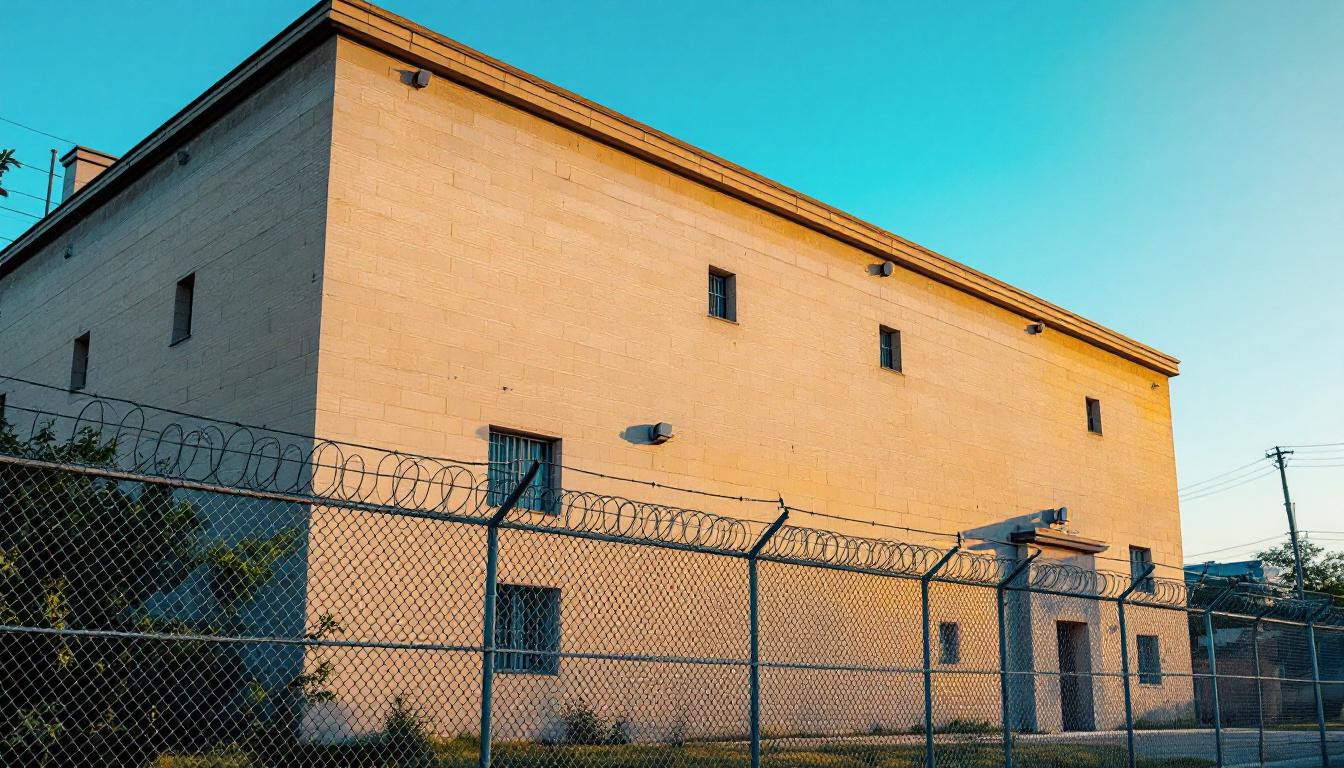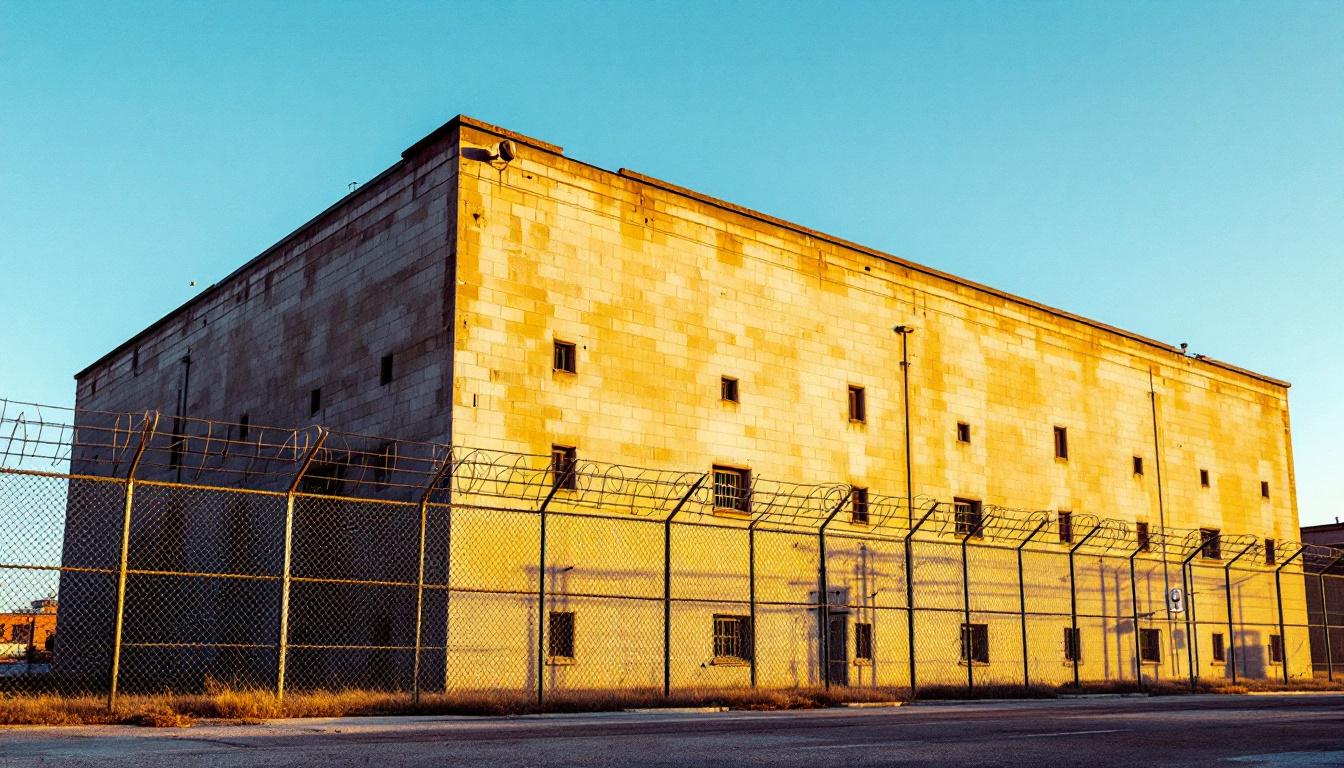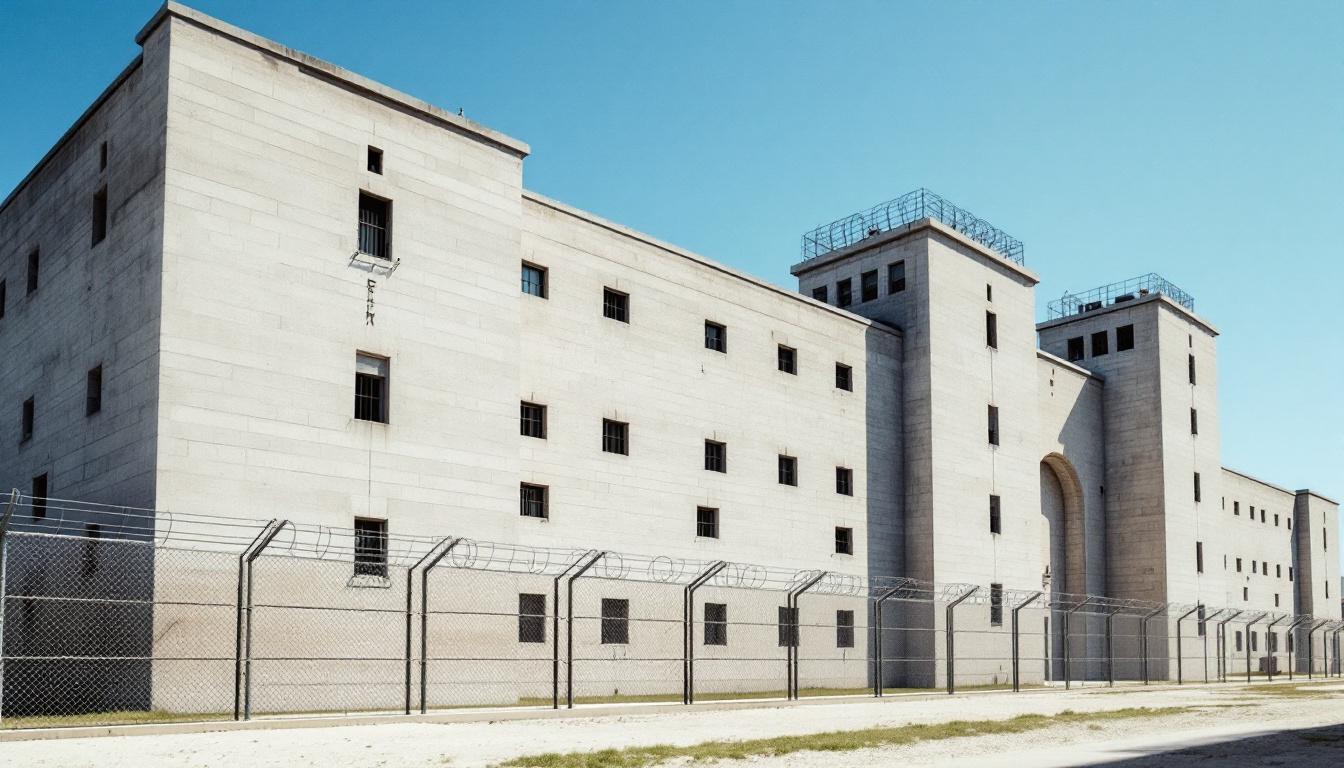
Quick Navigation
How to contact an inmate at Federal Medical Center
This comprehensive guide will walk you through how to connect with an inmate at Federal Medical Center. Follow the steps below to find an inmate and send letters and photos:
- Search for the inmate using our search tool below
- Create your account or log in to Penmate
- Write your message (up to 6,000 characters)
- Send instantly - inmates receive printed copies daily
Find an Inmate
Search for an inmate to start communicating today
Tip: You can search by first name, last name, or inmate ID number
To contact a person at Federal Medical Center start by searching for the person on the official facility website. Perform a search by following these steps:
- Step 1: Enter their first name and last name into the search form and click "Search"
- Step 2: Locate their inmate record
- Step 3: Write down their Inmate ID and any housing information provided
Important! Be sure to enter the person's full name. Nicknames should not be used.
How to Send Messages to Inmates

You can use your phone or computer to send emails, letters, and photos to an inmate. Messages are sent electronically to inmate tablets or kiosks at the facility. If you would like to send a message, start by searching for an inmate at Federal Medical Center.
Sending Photos and Postcards

A great way to send love and support to a loved one at Federal Medical Center is to send photos and postcards. It only takes a few minutes to send photos from your phone and it makes a huge difference. You can also mail postcards with words of support and inspiration, or design your own postcard for special moments like birthdays and holidays.
Important! Be sure not to send any explicit photos or they may not be approved by the facility. You can also use a photo printing app like Penmate to make sure your photos are printed at the correct size (4x6 or 3x5) and are mailed according to the rules and regulations of Federal Medical Center.
Frequently asked questions about Federal Medical Center
-
How long does it take to deliver a message?
If you're sending an email message your letter is usually delivered within 24-48 hours. For messages sent via mail you should expect delivery within 3-7 days. All messages will need be approved by Federal Medical Center.
-
How much does it cost to send a message to Federal Medical Center?
You can send a message free using your phone or mail a message via USPS for the price of a $0.60 stamp and envelope. You can also purchase credits or e-stamps from services starting at $1.99.
-
What services can I use to contact an inmate at Federal Medical Center?
Penmate
You can use Penmate to send letters and photos to an inmate from your phone. It's an easy way to stay in touch during your loved one's incarceration. Use the inmate locator to find an inmate's location and contact information, then you can send messages within a few minutes.
Securus messaging
Securus may be another option for communicating with an inmate at Federal Medical Center. You can create a friends and family account and purchase credits to send messages. All messages will be reviewed and must be approved by the facility.
JPay
Some county jails and state prisons may support sending messages with JPay. You must register an account with the system, find your loved one, and purchase stamps to send messages. For some locations you can also attach photos.
Smart Jail Mail
You may also check if Smart Jail Mail is available at Federal Medical Center. Smart Jail Mail is operated by Smart Communications and has contracted with some state and county jails. After purchasing credits, your messages and photos are sent to the facility, printed out, and then handed out to your loved one.
-
What is the mailing address of Federal Medical Center?
Mailing address:
Federal Medical Center
2110 E Center St
Rochester, MN 55904
Phone: (507) 287-0674Business hours:
- Monday: Open 24 hours
- Tuesday: Open 24 hours
- Wednesday: Open 24 hours
- Thursday: Open 24 hours
- Friday: Open 24 hours
- Saturday: Open 24 hours
- Sunday: Open 24 hours
-
What are the visiting hours at Federal Medical Center?
Visiting hours at Federal Medical Center vary by housing unit and security level. Generally, visits are scheduled on weekends and holidays, with some facilities offering weekday visits. Contact the facility directly at (507) 287-0674 or check their website for the current visiting schedule. Visits typically last 30-60 minutes and must be scheduled in advance.
-
What items are prohibited when sending mail to Federal Medical Center?
Prohibited items typically include: cash, personal checks, stamps, stickers, glitter, glue, tape, staples, paperclips, polaroid photos, musical or blank greeting cards, hardcover books, magazines with staples, and any items containing metal or electronics. Only send letters on plain white paper with blue or black ink. Photos must be printed on regular photo paper (no Polaroids). Always check with Federal Medical Center for their specific mail policies.
-
How do I send money to an inmate at Federal Medical Center?
You can send money to an inmate at Federal Medical Center through several methods: 1) Online using JPay, Access Corrections, or the facility's approved vendor, 2) Money orders mailed directly to the facility with the inmate's name and ID number, 3) Kiosks located in the facility lobby, or 4) Over the phone using a credit or debit card. Fees vary by method, typically ranging from $2.95 to $11.95 per transaction.
-
Can I schedule a video visit with an inmate at Federal Medical Center?
Many facilities now offer video visitation as an alternative to in-person visits. At Federal Medical Center, video visits may be available through services like Penmate, Securus Video Connect, GTL, or ICSolutions. Video visits typically cost $10-20 for 20-30 minutes and must be scheduled in advance. You'll need a computer or smartphone with a camera and reliable internet connection. Contact the facility for their specific video visitation policies and approved vendors.
-
What identification do I need to visit an inmate at Federal Medical Center?
All visitors must present valid government-issued photo identification such as a driver's license, state ID, passport, or military ID. Minors must be accompanied by a parent or legal guardian who can provide the minor's birth certificate. Some facilities require visitors to be on the inmate's approved visitation list, which may require a background check. Contact Federal Medical Center for specific ID requirements and visitor approval procedures.
-
How can I find out an inmate's release date?
To find an inmate's release date at Federal Medical Center, you can: 1) Use the online inmate search tool if available, 2) Call the facility's records department, 3) Contact the inmate's case manager or counselor, or 4) Have the inmate provide this information during a call or visit. For privacy reasons, some facilities only release this information to immediate family members.
Facility Overview
Contact Information
Federal Medical Center2110 E Center St
Rochester, MN 55904
Phone: (507) 287-0674
Official Website

About Federal Medical Center
Nestled within Rochester's southeastern Minnesota landscape, this federal medical center serves as a specialized component of the state's broader correctional infrastructure, addressing the complex intersection of incarceration and healthcare needs. The facility typically operates with a focus on balancing necessary security measures while providing comprehensive medical and rehabilitative services to its resident population, reflecting Minnesota's commitment to addressing both public safety and individual rehabilitation within the correctional system.
FMC Rochester, Mn generally emphasizes educational programming and vocational training opportunities that may include basic literacy courses, GED preparation, and various skill-development workshops designed to support successful community reintegration. The facility often provides residents services that encompass substance abuse counseling, mental health support, and medical care coordination, recognizing that addressing underlying health issues frequently plays a crucial role in reducing recidivism. These programs typically operate within a structured environment that maintains appropriate security protocols while fostering personal growth and responsibility among participants.
As part of Minnesota's correctional network, this MN correctional facility often collaborates with community organizations and educational institutions to ensure continuity of care and support services that extend beyond incarceration. The facility's approach generally includes family communication programs and visiting opportunities that help maintain important social connections, while also offering various recreational and wellness activities that support overall rehabilitation goals within the secure environment.
Programs & Services
Comprehensive rehabilitation initiatives at FMC Rochester typically emphasize skill development and personal growth through evidence-based programming designed to address the diverse needs of residents. The facility's approach often integrates educational advancement with practical life skills training, creating pathways for successful community reintegration. These multifaceted initiatives may deliver structured learning opportunities that build upon individual strengths while addressing areas requiring development.
Educational programming often includes adult basic education courses, GED preparation, and post-secondary educational opportunities that allow residents to advance their academic credentials. Additionally, vocational training initiatives typically provide hands-on instruction in marketable trades and technical skills, preparing participants for employment upon release. These educational and vocational components may deliver certification programs that align with regional workforce demands, enhancing residents' competitive positioning in the job market.
Support services encompass comprehensive transitional planning that typically addresses housing, employment, and community connections essential for successful reentry. The facility may offer specialized chemical dependency treatment initiatives that utilize therapeutic modalities to address substance abuse issues through counseling and behavioral interventions. Additionally, practical skill-building programs such as painting and decorating training often provide residents with both vocational competencies and opportunities for creative expression, contributing to overall rehabilitation goals while developing transferable workplace abilities.
Daily Life & Visitation
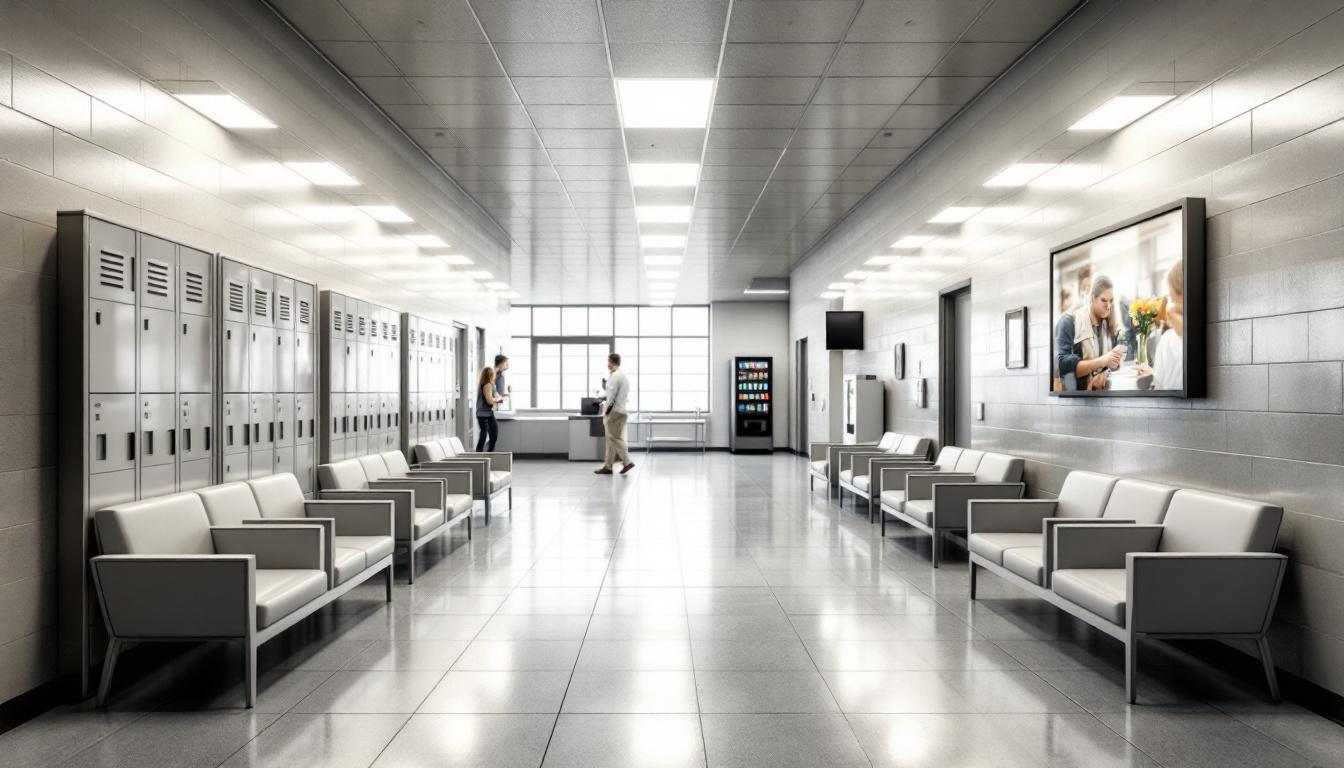
The rhythmic cadence of structured schedules currently anchors each day within the facility's walls, where carefully planned routines deliver consistency and predictability for residents navigating their time at FMC Rochester. Morning counts typically begin the day, followed by meal service and work assignments that continue throughout scheduled periods, creating a framework that many residents find helps them maintain focus and stability. These established patterns generally include designated times for recreation, programming, and personal activities, ensuring that each day follows a predictable sequence that residents can rely upon.
Living accommodations at the facility typically feature housing units designed to balance security requirements with basic comfort needs. Residents generally share living spaces that include essential furnishings and storage for approved personal property, while dining arrangements usually involve scheduled meal times in common areas where residents gather for breakfast, lunch, and dinner. Additionally, the facility often provides access to commissary services where residents may purchase approved items to supplement their basic needs, and recreational opportunities typically include outdoor exercise periods, indoor fitness facilities, and organized activities that promote physical wellness and social interaction.
Structured programming schedules deliver educational, vocational, and therapeutic opportunities that help residents develop skills and address personal goals during their time at the facility. Work assignments generally provide residents with purposeful daily activities while contributing to facility operations, and these positions may include food service, maintenance, or administrative support roles. While maintaining security protocols, the facility typically offers visitation opportunities and communication options such as telephone access and correspondence, allowing residents to maintain important connections with family members and support systems in their communities.
Ready to Connect?
Start communicating with your loved one today
Search for an Inmate
